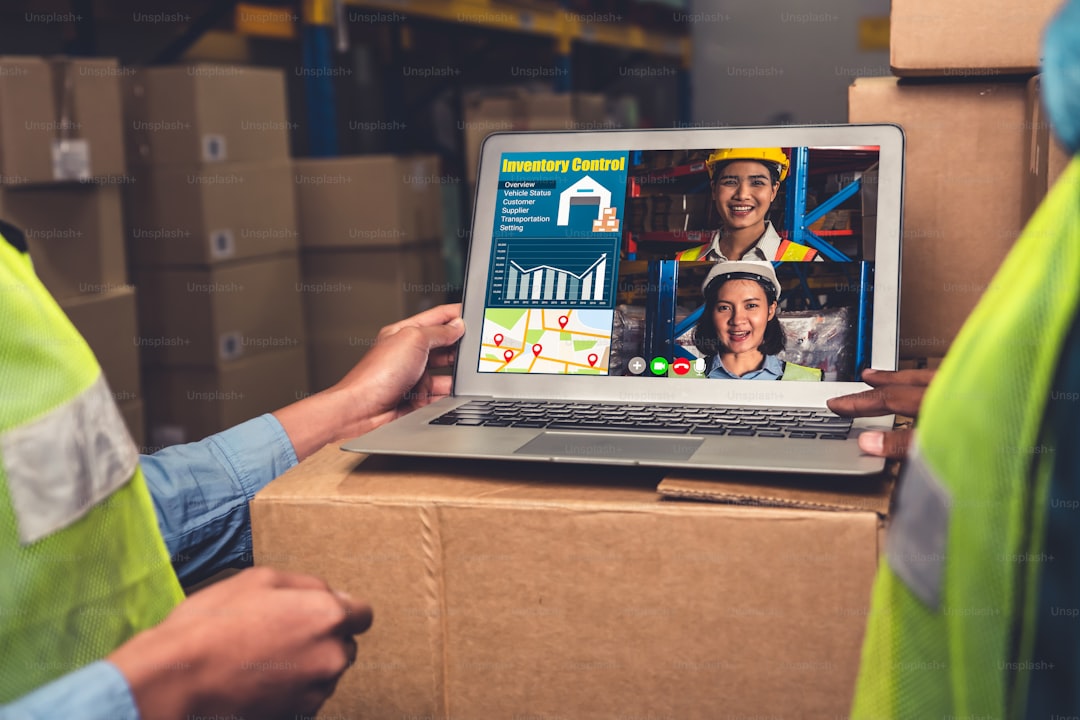Nomad Essentials A Complete Guide to Apps, Books and Podcasts

Introduction
Living a location‑independent life is as much about mindset as it is about the tools you use. Whether you are a digital nomad, a remote freelancer, or simply someone who enjoys long‑term travel, the right apps, books and podcasts can make the difference between chaos and smooth sailing. This guide pulls together the most useful resources, organized by purpose, so you can quickly find what you need at any stage of your journey.
Apps for Nomads
Communication and Collaboration
Staying connected with clients, teammates and friends is a top priority. The best communication tools combine reliability, low data usage and cross‑platform compatibility.
Slack – A staple for team chat, Slack offers channels, direct messages and powerful integrations with project‑management tools. Its free tier is generous enough for most solo nomads.
Microsoft Teams – If you work with organizations that rely on Office 365, Teams provides chat, video calls and file sharing within the same ecosystem.
Zoom – For high‑quality video meetings, Zoom remains the go‑to solution. The free plan allows 40‑minute meetings with up to 100 participants, which is usually sufficient for most remote work sessions.
Signal – When privacy is a concern, Signal provides end‑to‑end encrypted messaging and voice calls without the data‑selling practices of many mainstream apps.
WhatsApp – Still the most widely used messaging app globally, WhatsApp is useful for quick chats with locals, travel companions and family back home.
Project Management and Productivity
Keeping track of tasks, deadlines and deliverables while hopping between time zones can be challenging. These apps help you stay organized without feeling overwhelmed.
Trello – A visual board system that uses cards and lists to map out projects. Its flexibility makes it ideal for everything from editorial calendars to client onboarding pipelines.
Asana – Offers more structured task management with timelines, dependencies and workload views. The free version supports up to 15 team members, which is perfect for small collaborations.
Notion – Combines notes, databases, wikis and task boards in one workspace. Nomads love Notion for its ability to serve as a travel journal, expense tracker and knowledge base all at once.
Todoist – A straightforward to‑do list app that supports natural language entry (“Submit proposal tomorrow at 9 am”) and offers powerful filters for sorting tasks by project, priority or deadline.
RescueTime – Tracks how you spend time on your devices, giving you insight into productivity patterns. Use the weekly reports to identify distractions and optimize work blocks.
Finance and Budgeting
Managing money across borders involves currency conversion, tax compliance and expense tracking. These apps simplify the financial side of nomadic life.
Wise – Formerly TransferWise, Wise offers low‑cost international transfers and a multi‑currency account with a debit card that works worldwide. The app shows real‑time exchange rates and lets you hold up to 50 currencies.
Revolut – A fintech platform that provides a prepaid card, currency exchange at interbank rates and a budgeting dashboard. The free tier includes a modest amount of free ATM withdrawals each month.
Splitwise – Perfect for sharing expenses with travel companions. Enter each cost, assign who paid and who owes what, and the app automatically balances the books.
Currency – A simple converter that stores offline rates, making it useful when you are in a spot with spotty internet.
PayPal – Still essential for receiving payments from clients who prefer the platform. Pair it with a virtual card service to withdraw funds locally.
Accommodation and Workspace
Finding a place to stay and a reliable desk is a core part of the nomadic routine. These apps help you secure both short‑term rentals and coworking desks.
Airbnb – Offers a wide range of short‑term rentals, from private rooms to entire homes. The “Monthly Stays” filter highlights options with discounts for longer stays.
Booking.com – Great for last‑minute hotel bookings and flexible cancellation policies. Their “Genius” loyalty program can unlock extra discounts.
Nomad List – A community‑driven database of cities ranked by cost of living, internet speed, safety and nomad friendliness. Each city page includes links to recommended coworking spaces and housing options.
Workfrom – Curates a list of cafés, libraries and coworking spaces with reliable Wi‑Fi. The app lets you filter by noise level, power outlet availability and community vibe.
Couchsurfing – For the adventurous traveler, Couchsurfing connects you with hosts willing to offer a free place to stay. The platform also hosts local meet‑ups that can turn strangers into friends.
Travel Logistics
From flight tracking to local transportation, these tools keep your movement smooth and stress‑free.
Skyscanner – Search for the cheapest flights across multiple airlines. The “Everywhere” feature helps you discover new destinations based on your budget.
Google Maps – The default navigation app for most travelers. Offline map downloads and real‑time traffic updates make it indispensable.
Rome2rio – Shows you how to get from point A to point B using planes, trains, buses, ferries and rideshares. It aggregates schedules and prices in one view.
TripIt – Automatically creates a master itinerary from your email confirmations. The free version organizes flights, hotels and car rentals in a single timeline.
Citymapper – Provides detailed public‑transport routes for major cities worldwide. Its “Live Departures” view helps you catch the next bus or train without waiting.
Health and Well‑Being
Maintaining physical and mental health on the road is crucial for long‑term productivity.
MyFitnessPal – Log meals and track macros, even when you’re eating local cuisine. The large food database includes many international entries.
Headspace – Offers guided meditations ranging from five minutes to full‑hour sessions. Use the “Travel” pack for techniques to manage jet lag and anxiety.
Fitbit – If you own a wearable, the Fitbit app tracks steps, heart rate and sleep quality. Sync it to your phone to see trends over time.
First Aid by Red Cross – A simple reference for emergency medical procedures, especially useful in regions with limited healthcare access.
Google Translate – Not just a language tool, the conversation mode lets you speak and have the app translate in real time, easing communication in medical settings.
Lifestyle and Community
Feeling part of a community helps combat loneliness and provides valuable local insights.
Meetup – Find events ranging from language exchanges to tech talks. Filtering by “digital nomad” often reveals gatherings of like‑minded travelers.
Facebook Groups – Search for city‑specific nomad groups. They are great for housing leads, coworking recommendations and social meet‑ups.
Discord – Many nomad communities have moved to Discord servers where you can chat in voice or text channels, share resources and get real‑time support.
Reddit – Subreddits such as r/digitalnomad, r/travel and r/solotravel are treasure troves of advice, personal stories and Q&A.
Instagram – Follow hashtags like #nomadlife or #remotework to discover new destinations, remote‑work-friendly cafés and inspirational stories.
Books for Nomads
Reading provides perspective, practical strategies and motivation. Below is a curated list of books that address the unique challenges of a location‑independent lifestyle.
The Fundamentals of Remote Work
Remote: Office Not Required by Jason Fried and David Heinemeier Hansson
A manifesto for working outside the traditional office. The authors, founders of Basecamp, share anecdotes that prove productivity is not tied to a physical desk. The book offers actionable tips on communication, trust building and avoiding burnout.
The 4‑Hour Workweek by Timothy Ferriss
A classic that introduced the concept of “lifestyle design.” Ferriss outlines how to automate income, outsource tasks and create mini‑retirements that can be turned into permanent travel.
Travel‑Focused Guides
Vagabonding: An Uncommon Guide to the Art of Long‑Term Travel by Rolf Potts
A philosophical treatise on why and how to travel for an extended period. Potts emphasizes flexibility, immersion and the importance of “slow travel” over ticking off a checklist of sights.
The Art of Travel by Alain de Botton
Explores the psychological motives behind travel, providing readers with a deeper understanding of the emotional rewards of wandering.
Practical Handbooks
Digital Nomad Handbook: How to Live, Work and Travel the World by Lonely Planet
A comprehensive guide covering visas, insurance, coworking spaces and community building. The book includes checklists for setting up a mobile office and staying compliant with tax regulations.
Nomad Capitalist: How to Reclaim Your Freedom by Andrew Henderson
Focuses on the financial side of nomadic life, from offshore banking to dual citizenship. Though some strategies are aggressive, the book offers a solid foundation for thinking about wealth while traveling.
Personal Development
Atomic Habits by James Clear
Building sustainable routines while moving from place to place is a challenge. Clear’s framework of tiny changes, cue‑response loops and environment design helps you create habits that stick regardless of geography.
Deep Work by Cal Newport
Explains how to cultivate intense focus in an era of constant distraction. The concepts of “scheduled shutdowns” and “work‑by‑time‑boxing” are especially useful for nomads juggling multiple time zones.
Storytelling and Inspiration
Eat, Pray, Love by Elizabeth Gilbert
A memoir of a year spent traveling through Italy, India and Indonesia. While not a practical guide, the book captures the emotional transformation that can occur when you step out of your comfort zone.
The Alchemist by Paulo Coelho
A fictional tale about following your personal legend. Its themes of destiny, perseverance and listening to the universe resonate with anyone seeking purpose on the road.
Specialized Topics
The Lonely Planet Guide to Working Abroad edited by Lonely Planet
Offers country‑by‑country advice on visa options, coworking spaces, local customs and safety considerations. A valuable reference when you are planning a new base.
Tax-Free World: How to Legally Reduce Your Taxes While Living Anywhere by Robert Kiyosaki (foreword) and Michael L. McCullough
Breaks down tax strategies for digital nomads, including how to establish tax residency, claim foreign earned income exclusions and navigate double‑tax treaties.
How to Use These Books Effectively
-
Start with a mindset book – Choose a title that addresses the “why” behind nomadic living (e.g., Vagabonding). Read it during your first weeks on the road to solidify your purpose.
-
Add a practical handbook – Once you have motivation, bring in a guide like Digital Nomad Handbook for actionable steps on visas, insurance and setting up a mobile office.
-
Layer in productivity reads – As you settle into a routine, integrate Atomic Habits or Deep Work to refine your daily workflow.
-
Read for inspiration – Keep a memoir or fictional story in your bag for those evenings when you need a morale boost.
-
Revisit finance and tax books – When your income grows or you plan a long‑term stay in a new jurisdiction, dive into the specialized finance titles.
Podcasts for Nomads
Audio content allows you to learn while commuting, walking through a new city or working in a café. Below is a selection of podcasts that cover remote work, travel logistics, personal growth and community stories.
Remote Work and Entrepreneurship
The Remote Show – Hosted by We Work Remotely, this interview‑style podcast features remote founders, hiring managers and community leaders. Episodes explore hiring practices, building distributed cultures and tools that make remote work possible.
Side Hustle School – Hosted by Chris Guillebeau, each episode tells the story of a person who turned a simple idea into a profitable side business. Many episodes focus on online services that can be run from anywhere.
Indie Hackers – Interviews with founders of profitable online businesses. The focus on bootstrapped, location‑independent revenue models makes it a goldmine for nomads seeking sustainable income streams.
Travel and Lifestyle
Zero To Travel – Hosted by Jason Moore, this podcast covers everything from choosing a travel style to securing visas and staying safe abroad. The “Nomad Stories” segment features real‑world experiences from travelers around the globe.
The Thoughtful Travel Podcast – Offers deep dives into travel psychology, cultural immersion and responsible tourism. Episodes often feature interviews with long‑term travelers who share practical tips and personal reflections.
Travel with Rick Steves – While not exclusively for nomads, this long‑running show provides destination guides, travel hacks and interviews with locals, helping you plan richer experiences in each new city.
Personal Development and Well‑Being
The Happiness Lab – Dr. Laurie Santos explores the science of happiness and how to apply it in daily life. Episodes on gratitude, purpose and resilience are particularly relevant for nomads coping with uncertainty.
The Tim Ferriss Show – Tim Ferriss interviews high‑performers from various fields, extracting tactics for productivity, health and lifestyle design. Many episodes focus on “lifestyle experiments” that align with nomadic living.
10% Happier – Dan Harris talks about meditation, mindfulness and mental health. The short, practical episodes help you build mental resilience while constantly adapting to new environments.
Community and Stories
Nomadtopia – A community‑driven podcast that collects stories from digital nomads, remote workers and location‑independent entrepreneurs. The hosts discuss tools, challenges and the emotional side of life on the move.
The Remote Life Podcast – Focuses on the logistics of moving abroad, including visa processes, insurance, and coworking spaces. Episodes often feature case studies of people who have relocated to popular nomad hubs.
Cultivating Community – Explores how to build meaningful connections while traveling. Topics include language learning, cultural etiquette and creating lasting friendships across borders.
How to Integrate Podcasts into Your Routine
-
Morning commute – While waiting for a train or riding a bike, listen to an episode of The Remote Show or Zero To Travel to start the day with actionable insights.
-
Work blocks – During low‑energy periods or while performing repetitive tasks, play The Happiness Lab or 10% Happier to boost mood without breaking focus.
-
Evening wind‑down – After a day of exploring, unwind with The Tim Ferriss Show or Cultivating Community to reflect on personal growth and social connections.
-
Travel planning – Use Travel with Rick Steves or Nomadtopia while researching your next destination. The narrative format often reveals hidden gems not found in guidebooks.
-
Skill building – If you need to learn a new tool or language, find relevant episodes on Side Hustle School or Indie Hackers that discuss specific platforms or strategies.
Building Your Nomad Toolkit
Having a long list of resources is useful, but the real power comes from curating a personalized toolkit that fits your lifestyle, work style and travel preferences. Below is a step‑by‑step process to assemble, test and refine your essential apps, books and podcasts.
Step 1: Define Your Core Needs
Write down the three most critical aspects of your nomadic life right now. Examples might be:
- Reliable internet and coworking spaces
- Managing multiple currencies and payments
- Staying healthy while on the move
Prioritize them in order of urgency. This will guide which apps and resources you install first.
Step 2: Choose One App per Category
Avoid the temptation to download every recommended app. Instead, pick the top option for each category that aligns with your workflow.
| Category | Chosen App | Reason |
|---|---|---|
| Communication | Signal | End‑to‑end encryption and low data usage |
| Project Management | Notion | Combines notes, tasks and databases |
| Finance | Wise | Multi‑currency account with low fees |
| Accommodation | Nomad List | City rankings and coworking recommendations |
| Travel Logistics | Skyscanner | Cheapest flight discovery and “Everywhere” feature |
| Health | Headspace | Short meditations for jet lag and anxiety |
Step 3: Create a Resource Library
- Books: Use a note‑taking app (e.g., Notion) to maintain a reading list. Add a column for “Current Status” (To‑Read, In‑Progress, Completed) and another for “Key Takeaways.” This turns each book into a living reference.
- Podcasts: Subscribe to a podcast manager (e.g., Pocket Casts). Organize playlists based on theme: “Productivity,” “Travel Planning,” “Mindset.” Mark episodes you want to listen to later with a star or a custom tag.
Step 4: Set Up Automation
- Expense Tracking: Connect Wise to Zapier, creating a workflow that logs every transaction into a Google Sheet. Add a column for “Category” and use filters to see monthly spending patterns.
- Travel Alerts: Use IFTTT to receive a daily email with flight price drops for your target routes. Combine with Skyscanner’s price‑watch feature for maximum coverage.
- Backup: Enable automatic backups for Notion, Trello or any other productivity tool you rely on. Export data weekly to a cloud storage service like Google Drive.
Step 5: Test in a Real‑World Scenario
Pick a short trip (e.g., a weekend in a neighboring city) and run through your workflow:
- Book accommodation via Airbnb and add the reservation to TripIt.
- Set up a coworking desk using Workfrom.
- Conduct a video call with a client using Zoom.
- Log all expenses in Splitwise and Wise.
- Listen to a podcast episode while commuting.
- Review your reading notes in Notion during downtime.
Take notes on what worked, what felt redundant and any friction points (slow app loading, missing feature, etc.).
Step 6: Refine and Iterate
After the test trip, adjust your toolkit:
- Replace any underperforming app with an alternative from the guide.
- Add new books or podcasts discovered during the trip.
- Update your automation rules based on new insights.
Repeat the testing cycle whenever you move to a new country or shift the focus of your work (e.g., from writing to software development).
Tips for Sustainable Nomadic Living
The resources listed above give you the tools, but sustainable nomadic life also depends on habits and mindset.
Embrace Minimalism
- Keep digital clutter low. Delete unused apps regularly.
- Store essential documents (passports, visas, insurance) in an encrypted cloud folder.
- Use a lightweight laptop or tablet that meets both work and leisure needs.
Prioritize Health
- Schedule at least one hour of physical activity each day—yoga, running, or a simple walk.
- Stay hydrated and monitor sleep quality with a wearable or a sleep‑tracking app.
- Have a basic medical kit and know the location of the nearest hospital in each city.
Build Community
- Attend at least one local meetup per month. Even a coffee chat can lead to collaboration opportunities.
- Contribute to online nomad groups by sharing resources or answering questions. Reciprocity builds reputation and support networks.
- Consider a “digital nomad co‑living” arrangement for a few months to create deeper bonds.
Manage Finances Wisely
- Keep an emergency fund in a separate account with easy access.
- Review subscription services quarterly; cancel those you no longer need.
- Stay aware of tax obligations in your home country and any countries where you stay longer than 183 days.
Maintain Work‑Life Balance
- Set clear boundaries with clients: define working hours in your local time zone and communicate them.
- Use a “shutdown ritual” at the end of each workday—close laptop, turn off notifications, and transition to leisure activities.
- Schedule regular “digital detox” days where you explore without screens.
Frequently Asked Questions
How many apps should I actually use?
There is no one‑size‑fits‑all number. The goal is to cover core functions (communication, finance, accommodation, productivity) without redundancy. Typically 8‑12 active apps provide enough coverage while keeping your device manageable.
Do I need a VPN when traveling?
A VPN adds a layer of security, especially when using public Wi‑Fi. It also helps you access services that may be geo‑blocked in certain countries. Choose a reputable provider with a wide server network and a no‑log policy.
Can I work legally without a work visa?
Many countries allow short‑term stays for tourism, during which you can work remotely for foreign clients. However, if you intend to earn income from a local source or stay longer than the tourist allowance, you may need a specific digital nomad or freelance visa. Always verify the latest regulations before you travel.
What’s the best way to handle time‑zone differences with clients?
Set a regular “core hours” window that overlaps with most of your clients’ business hours. Communicate this window clearly and use calendar tools that display multiple time zones (Google Calendar, Outlook) to avoid confusion.
How can I stay motivated when I’m constantly moving?
Create a personal mission statement that outlines why you chose the nomadic lifestyle. Refer back to it during low‑energy periods. Regularly revisit your reading list for inspiration and set small, achievable goals each week.
Conclusion
The nomadic lifestyle thrives on flexibility, curiosity and the right set of tools. By selecting a handful of reliable apps, immersing yourself in books that teach both the practical and philosophical aspects of location‑independent living, and tuning into podcasts that keep you informed and inspired, you build a robust foundation for sustainable travel and remote work.
Remember that the best toolkit is one that evolves with you. Start simple, test in real‑world scenarios, and iterate based on what works for your unique workflow and travel style. With the resources compiled in this guide, you are equipped to navigate visas, finances, productivity and community building with confidence.
Now go ahead, pack your laptop, your favorite headphones, and a copy of Vagabonding. The world is waiting, and you have everything you need to make the most of every step of the journey.
Random Posts

Legal Checklist for the Modern Nomad Lifestyle
Navigate the nomad life with confidence: a step-by-step legal checklist covering visas, taxes, business structure, banking, insurance, data protection and IP, so you can focus on work and adventure.
1 month ago

Boost Your Remote Productivity with the Best Cafes and Flexible Workspaces
Discover how the right café or flexible workspace can supercharge your remote work. Learn to spot reliable Wi, Fi, power, ergonomics and vibe, plus curated spots worldwide to stay focused, creative and productive
1 week ago

Travel Smart With Top Resources for Digital Nomads
Discover the essential tools, books, podcasts and courses that help digital nomads stay organized, work efficiently and keep learning on the road, whether you’re just starting out or a seasoned traveler.
1 month ago

How Much to Spend in Portugal When Working Anywhere
Discover realistic monthly budgets for living and working anywhere in Portugal, from Lisbon to Porto and the Algarve, with cost breakdowns, sample lifestyle plans, and practical tips to stretch every euro while enjoying the culture
2 months ago

Explore Remote Friendly Cities with Essential Nomad Gear
Discover the top remote-friendly cities and the must-have gear that keeps you productive on the move. Learn what internet standards, coworking vibes, and essential equipment make any destination a smooth, inspiring digital-nomad base.
1 month ago
Latest Posts

Essential Software Every Remote Professional Should Use
Master remote work with essential tools: instant messaging like Slack, high definition video calls such as Zoom, and asynchronous voice apps. Streamline communication, stay connected and boost productivity.
1 day ago

Mastering Remote Work Productivity for Digital Nomads and Freelancers
Learn proven habits, tools, and tactics that help digital nomads and freelancers stay focused, deliver quality work, and maintain a sustainable lifestyle while traveling the world.
1 day ago

Tech‑Friendly European Towns Perfect for Remote Living
Discover Europe’s best small towns where fast internet, affordable living and vibrant tech communities let you work remotely while soaking up historic charm, lakeside views or mountain air.
1 day ago